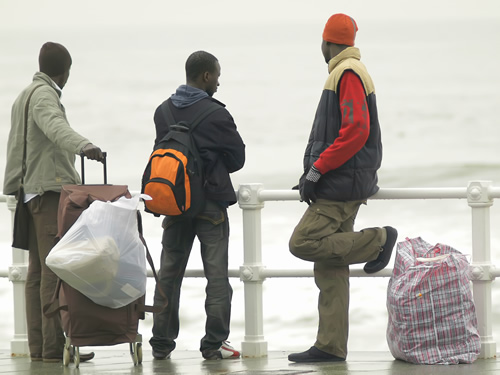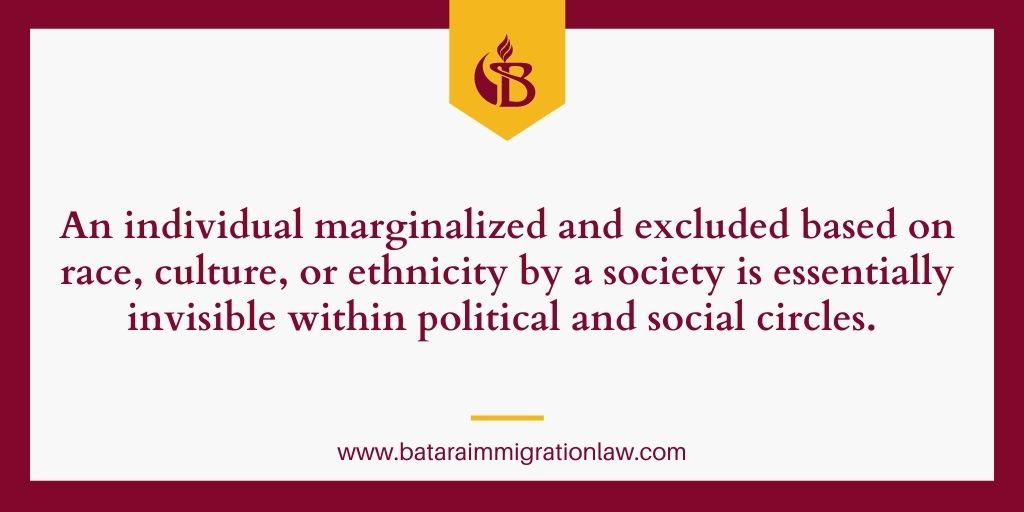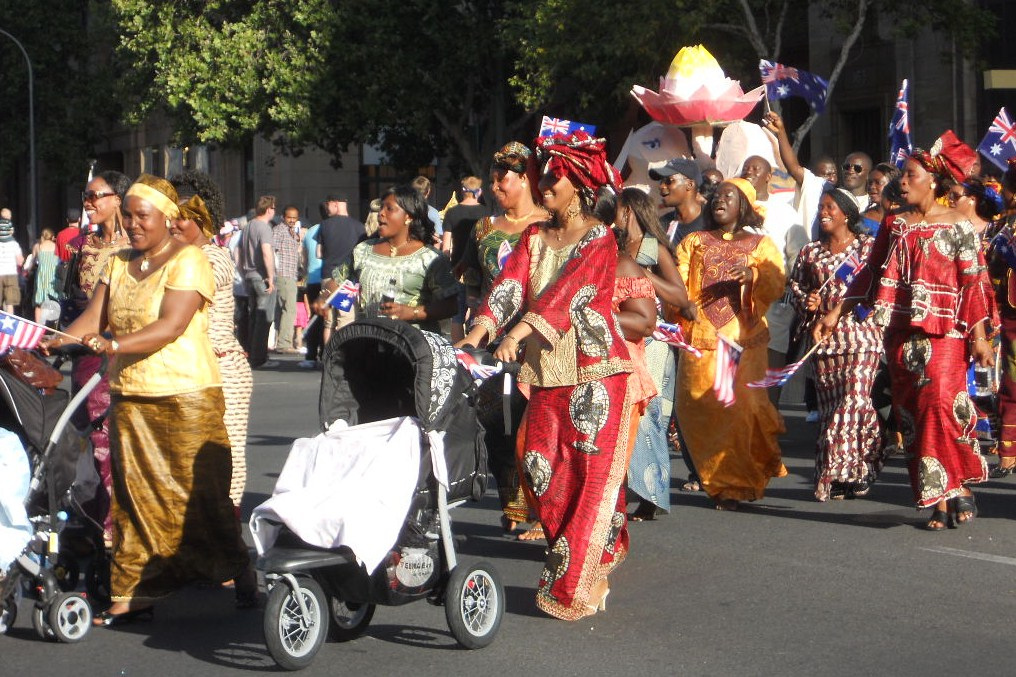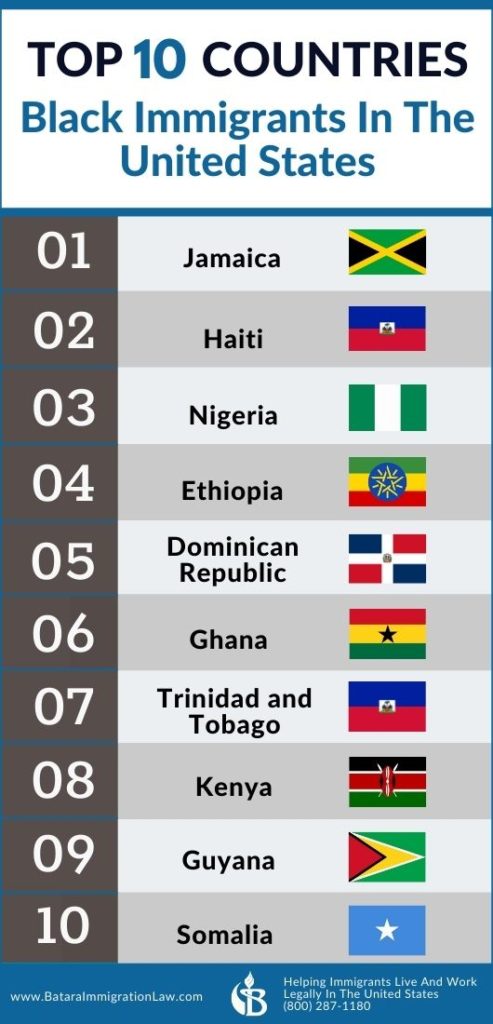
Once again, the big lie of anti-immigrant lobbies has been exposed.
Immigration reform is not a one-ethnicity issue, contrary to the claims of xenophobic and racist opponents.
For instance, take the Black immigrant community in the United States.
Various studies over the past few years have shown the number of immigrants of African and Caribbean descent have doubled every decade since 1970.
Their totals may be small relative to the much larger figures of immigrants from Mexico, China, India, and the Philippines. But their significance, as part of the overall reform movement, should not be minimized.
In other words, the need to fix the immigration system is a Black issue.
African And Caribbean Immigrants: Marginalized And Excluded
According to the Pew Research Center, there are 4.6 million immigrants of African or Caribbean descent in the U.S. This equals about 12% of the entire Black population.
However, these immigrants do not to come to mind for most Americans when they think about the issues central to the immigration reform debate.
Rather, since my early days as a San Diego immigration lawyer, the debate over reform has been focused on a wave of Mexican and other Latin American immigrants invading the southwest borders of the United States.
For many members of the public, this is their only snapshot of immigration in the U.S.
Their perspective is too narrow, as Black leaders have long pointed out, often to a closed-ear audience.
Will Reform Help Black Immigrants?
The Root, Janell Ross“I probably wouldn’t go so far as to say that the immigrant of African descent has been invisible, and certainly wouldn’t say they’ve been excluded,” says Rep. Yvette Clark, a Democrat representing New York’s 9th District in Congress, an area that includes Brooklyn neighborhoods that are home to hundreds of thousands of African and Caribbean immigrants. “I would say that our interests have been somewhat marginalized.”
I disagree in part with with Clark.
She tip-toes around the idea that political invisibility is not the same as social invisibility and attempts to minimize the effects of marginalization.
Like Ralph Ellison’s “Invisible Man”, an individual marginalized based on race, culture, or ethnicity by society is essentially excluded and invisible within political and social circles.

Nonetheless – whether viewed as marginalization, exclusion, or invisibility – the increasing number of Black immigrants are trivialized and largely neglected by those who administer our nation’s immigration laws.
Ramifications Of Marginalization
On Black Immigrants
A ground-breaking study, The State of Black Immigrants, shed light on challenges facing the immigrants from Africa, the Caribbean, Afro-Latino countries, and elsewhere, due in large part to their race.

The report, a joint project, was authored by the Black Alliance For Just Immigration in conjunction with New York University Law School’s Immigrant Rights Clinic.
Key findings included:
- Nearly 1 in 5 Black immigrants live below the poverty line
- Black immigrants have the highest unemployment rates among all immigrant groups
- More than one out of every five non-citizens facing deportation on criminal grounds before the Executive Office of Immigration Review is Black
- Black immigrants are more likely to be detained for criminal convictions than the immigrant population overall
In addition, the Census Bureau estimates that about 600,000 Black immigrants are undocumented, the majority likely without a pathway to permanent residence.
Pulling Back The Curtain Of Political Invisibility And Exclusion
Indeed, a quick look at current flows of Black immigrants serves sufficient notice that the U.S. needs to become more pro-active in serving the needs of those born in African and Caribbean nations.
According to some population estimates, Black immigrants in the United States constitute about 8% of the nation’s total foreign-born population.
Nearly half are from the Caribbean (46%), with an increasingly large number of the rest coming from Northern and Sub-Saharan Africa (42%). Together, these two regions now constitute 88% of the Black immigrant population in the United States..
Here’s a recent view of the African immigrant population, based on Pew Research Center data.:

In some of our nation’s major cities, like Miami, Washington D.C., Atlanta,and Boston, immigrants account for more than one-quarter of the Black population.
New York City has the largest proportion of Black immigrants.
According to Sam Roberts, writing for the New York Times, about a third of black New Yorkers were born abroad, mostly in the Caribbean.
He explains, “In New York City, while many have gravitated to ethnic enclaves like Little Senegal in West Harlem or the Concourse Village section of the West Bronx, immigrants from Africa have tended to disperse more widely across the country — to California, Florida, Georgia, Illinois, Maryland, Texas and Virginia — than Caribbean-born blacks.”
Recent projections show major growth ahead. It is estimated that about 33% of the U.S. Black population will be foreign-born individuals by 2060. This means, of course, the family unity and green card needs of African and Caribbean immigrants will likewise increase.
It’s time to pull the curtain of exclusion back and end the political invisibility of Black immigrants,
Towards More Diverse Immigration Policy
By narrowing the ethnic scope of debate, anti-immigrant forces are able to turn the reform debate into a subtle xenophobic diatribe against a narrow set of immigrant communities.
On the surface, these attacks on a few immigrant groups like Hispanics and Asians, may seem limited in their reach. A closer look reveals this strategy enable opponents to defeat proposals that would benefit immigrants from a broad range of backgrounds.
Whereas this political ploy of isolation takes the direct antagonistic public focus off cultural communities like African and Caribbean immigrants, it makes the plight for recognition of their unique needs worse off.
Black immigrants, after all, suffer from many of the same policy defects as other immigrant groups.
For instance, anti-family unity deportation and detention policies which keep low priority criminal offenders locked up without the right to bond, and separates families in which immigrants have deep ties to family, work, and school, affect Black immigrants like all other newcomers to this country.
As a family unity attorney, I can attest inexcusable delays and irrational obstacles which occur in the processing of immigrant relative petitions and green card applications harms both African and Caribbean immigrants as much as – if not more than – immigrants from other nations.
Being politically invisible does not guarantee immunity from the flaws of our immigration system. In fact, it worsens their impact.
In my view, the time is ripe for all immigrant advocates to be more outspoken in support of African and Caribbean immigrants – and equally important, to ensure they are provided a full seat in immigration reform policy discussions.
Given the current state of immigration affairs, there is no longer any room . . . if there ever was . . . for delay in recognizing the unique issues of Black immigrants.
Besides, in diversity we trust, right?
By Carlos Batara, Immigration Law, Policy, And Politics




